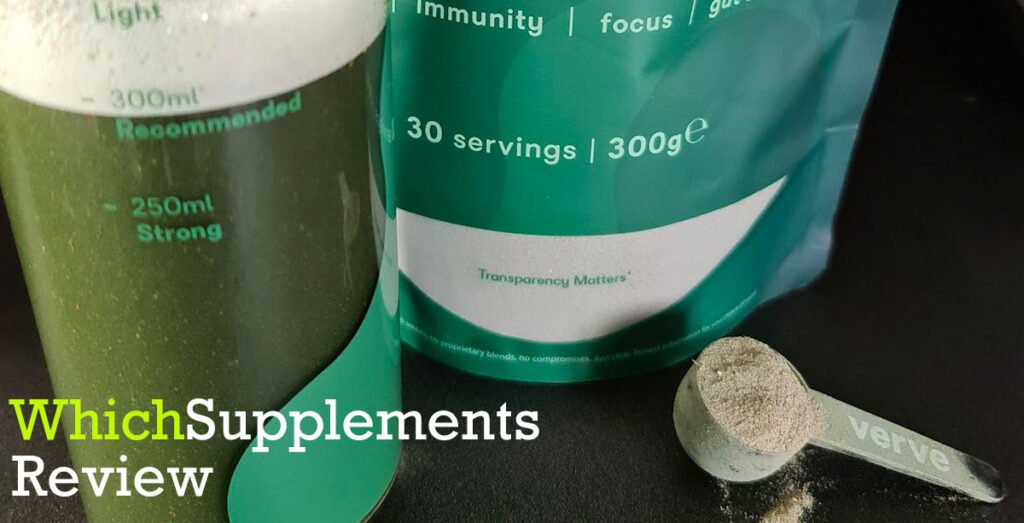What is Ashwagandha?
Ashwagandha is a herb that has been used for centuries in Ayurvedic medicine. It is also known as Indian ginseng and winter cherry. The herb is extracted from the roots of the Withania somnifera plant and is used to treat a variety of health conditions. It is native to India, the Middle East, and parts of Africa. The herb is also known as Withania somnifera, Indian ginseng, or winter cherry.
It is considered an adaptogen, which means it helps the body cope with stress. It is also used to boost the immune system, improve memory and concentration, and increase energy levels. The herb is also used to treat anxiety, depression, and insomnia. In addition, it has anti-inflammatory and antioxidant properties, which make it a popular choice for treating a variety of health conditions.
It is believed to have a calming effect on the nervous system and to reduce anxiety and depression. Studies have also shown that it can help to improve memory and cognitive function.
It is rich in antioxidants, which help to protect the body against damage from free radicals. It is also believed to have anti-inflammatory properties, which can help to reduce inflammation in the body and to alleviate pain and swelling.
The herb is available in a variety of forms, including capsules, tablets, powders, and teas. It is important to note that ashwagandha can interact with certain medications, so it is important to talk to your doctor before taking it.
In summary, ashwagandha is a herb that has been used for centuries in Ayurvedic medicine. It is an adaptogen that helps the body to cope with stress, and it is believed to have a calming effect on the nervous system. It is rich in antioxidants and has anti-inflammatory properties, and it is available in a variety of forms.
Supplements that contain ashwagandha
Benefits of Ashwagandha for Sleep
As someone who has struggled with sleep issues, I have found ashwagandha to be a helpful natural remedy. It is an adaptogenic herb that has been used for centuries in Ayurvedic medicine to promote relaxation and improve sleep quality.
Research has shown that it can help improve sleep in healthy adults. A study found that the extract significantly improved sleep quality in participants compared to the placebo group. The study suggested that it is a promising dietary supplement for sleep-related benefits.
In another study, it was found to increase sleep quality, energy, and mental clarity in college students. The study used a moderate dose for 30 days and found that it improved sleep dynamics and reduced stress levels.
Ashwagandha has also been found to be effective in improving sleep in elderly individuals. Another study found that the root extract improved general well-being and sleep quality in elderly participants.
Overall, ashwagandha appears to be a promising natural remedy for improving sleep quality. However, it is important to note that more research is needed to fully understand the effects on sleep and to determine the optimal dosage and duration of use. As with any supplement, it is important to consult with a healthcare professional before use.
Benefits of Ashwagandha for Men and Women
As a natural adaptogen, Ashwagandha has been shown to provide numerous benefits for both men and women. Here are some of the most notable benefits:
1. Improved Physical Performance
Ashwagandha has been found to improve physical performance in both men and women. A systematic review and meta-analysis of studies found that supplementation led to significant improvements in muscle strength, muscle size, and VO2 max in healthy adults. Another study found that Ashwagandha root extract effectively enhances male libido in adult men with normal testosterone and prolactin levels.
2. Reduced Stress and Anxiety
Ashwagandha has been shown to have a calming effect on the body, reducing stress and anxiety levels. A study found that Ashwagandha root extract significantly reduced levels of cortisol, the stress hormone, in both men and women. Another study found that supplementation significantly reduced symptoms of anxiety and depression in adults with chronic stress.
3. Improved Brain Function
Ashwagandha has been found to improve cognitive function in healthy, stressed adults. A study found that Ashwagandha root extract significantly improved reaction time, cognitive task performance, and executive function in adults with chronic stress. Another study found that supplementation improved memory and cognitive function in adults with mild cognitive impairment.
4. Anti-Inflammatory and Antioxidant Properties
Ashwagandha has been shown to have anti-inflammatory and antioxidant properties, which can help reduce inflammation and oxidative stress in the body. A study found that Ashwagandha supplementation significantly reduced markers of inflammation in adults with osteoarthritis. Another study found that it had potent antioxidant activity, which can help protect against cellular damage caused by free radicals.
Overall, it is a powerful natural adaptogen that offers numerous benefits for both men and women. From improved physical performance to reduced stress and anxiety, it can help support overall health and wellness.
Is Ashwagandha Good for Anxiety?
After doing some research, I found that there is evidence to suggest that Ashwagandha may be a helpful supplement for those dealing with anxiety.
A systematic review and meta-analysis of randomised controlled trials found that Ashwagandha supplementation may have a beneficial effect on the management of anxiety and stress. The study evaluated the effect of Ashwagandha extract on anxiety and stress and concluded that it may be a safe and effective treatment option for those dealing with anxiety.
Another study found that it may be helpful in managing stress-related neuropsychiatric disorders such as anxiety, depression, and insomnia. The study found that it may improve symptoms of anxiety and depression and may also improve sleep quality.
One study found that Ashwagandha root extract may be effective in reducing symptoms of anxiety and insomnia. The study found that participants who took Ashwagandha root extract experienced significant improvements in sleep quality and reduced anxiety levels.
It is important to note that while these studies suggest that Ashwagandha may be a helpful supplement for anxiety management, more research is needed to fully understand its potential benefits and any potential side effects. It is also important to speak with a healthcare provider before starting any new supplement regimen, especially if you are currently taking medication or have any underlying health conditions.
Ashwagandha Dosage
The optimal dosage can vary depending on a number of factors, such as age, weight, and overall health.
According to a systematic review of controlled trials, doses of Ashwagandha supplementation of 600 mg/day or more have been shown to have a beneficial effect on the management of anxiety and stress. However, it is always best to consult with a healthcare professional before starting any new supplement regimen.
Typically, Ashwagandha supplements come in the form of capsules or powders. The recommended dosage for capsules is usually around 500-600 mg per day, taken with food. For powders, a typical dosage is around 1-2 teaspoons per day, mixed with water or another beverage.
It is important to note that supplements can interact with certain medications, such as sedatives and thyroid hormone replacements. Therefore, it is crucial to talk to a doctor before starting supplementation if you are taking any medications.
In summary, the optimal dosage for Ashwagandha supplements can vary depending on various factors such as age, weight, and overall health. It is always best to consult with a healthcare professional before starting any new supplement regimen, especially if you are taking any medications.
What Does Ashwagandha Do to the Body
Ashwagandha is an adaptogenic herb that has been used for centuries in traditional Ayurvedic medicine. It is known for its ability to help the body resist stress and promote overall well-being.
When consumed, it interacts with various systems in the body, including the nervous, endocrine, and immune systems. It contains compounds called withanolides, which have been shown to have anti-inflammatory and antioxidant effects.
Research has suggested that ashwagandha may have several potential health benefits, including:
Reducing Stress and Anxiety
One of the most well-known benefits of ashwagandha is its ability to help reduce stress and anxiety. Studies have shown that it may help lower cortisol levels, which is a hormone that is released in response to stress.
Improving Sleep Quality
It may also help improve sleep quality. Some studies have found that it can help increase the amount of time spent in deep sleep, which is important for overall health and well-being.
Boosting Brain Function
It may also have cognitive benefits. Some studies have found that it can help improve memory and cognitive function in people with mild cognitive impairment.
Supporting Immune Function
It has also been shown to have immune-boosting properties. It may help increase the activity of immune cells and improve overall immune function.
Overall, ashwagandha is a versatile herb that may have several potential health benefits. While more research is needed to fully understand its effects, it is a promising natural remedy that may be worth considering for those looking to improve their overall health and well-being.
Ashwagandha Side Effects
As with any supplement or medication, it is important to be aware of the potential side effects. Although ashwagandha is generally considered safe, some people may experience adverse reactions. Here are some of the possible side effects:
1. Gastrointestinal Issues
Some people may experience gastrointestinal issues such as nausea, vomiting, and diarrhoea when taking ashwagandha. These side effects are usually mild and go away on their own after a few days. To minimise the risk of gastrointestinal side effects, it is recommended to take it with food.
2. Thyroid Hormone Imbalance
Ashwagandha has been shown to increase thyroid hormone levels in some people. This can lead to hyperthyroidism, a condition in which the thyroid gland produces too much thyroid hormone. Symptoms of hyperthyroidism include weight loss, rapid heartbeat, and anxiety. If you have a thyroid condition or are taking medication for your thyroid, it is important to consult with your doctor before taking it.
3. Allergic Reactions
Some people may be allergic to ashwagandha. Symptoms of an allergic reaction may include itching, rash, and difficulty breathing. If you experience any of these symptoms after taking it, stop taking the supplement immediately and seek medical attention.
4. Drug Interactions
It may interact with certain medications, including sedatives, thyroid hormone replacement therapy, and immunosuppressants. If you are taking any medication, it is important to consult with your doctor before taking ashwagandha.
5. Pregnancy and Breastfeeding
There is not enough research to determine the safety of ashwagandha during pregnancy and breastfeeding. It is recommended to avoid taking it during these times to minimise the risk of any potential side effects.
In summary, while it is generally considered safe, it is important to be aware of the potential side effects. If you experience any adverse reactions after taking ashwagandha, it is important to stop taking the supplement and seek medical attention. It is also recommended to consult with your doctor before taking it if you have any pre-existing medical conditions or are taking any medication.
Key Takeaways
Ashwagandha is an evergreen shrub that has been used for centuries in Ayurvedic medicine. It is also known as Indian ginseng or winter cherry. In this section, I will summarise the key takeaways.
Benefits of Ashwagandha
Ashwagandha has been studied for its potential health benefits. Here are some of the benefits that have been reported:
- Reducing stress and anxiety: It has been shown to reduce stress and anxiety in some studies. It may help to lower cortisol levels, which are often elevated in people with chronic stress.
- Improving sleep: Some studies suggest that it may improve sleep quality, particularly in people with insomnia.
- Boosting brain function: It has been shown to improve memory and cognitive function in some studies. It may also have neuroprotective properties, which could help to prevent neurodegenerative diseases.
- Reducing inflammation: It has anti-inflammatory properties, which may help to reduce inflammation in the body. Chronic inflammation is linked to a range of health problems, including heart disease and cancer.
- Lowering cholesterol and triglycerides: Some studies suggest that it may help to lower cholesterol and triglyceride levels in the blood.
How to Take Ashwagandha
Ashwagandha is available in a variety of forms, including capsules, powders, and teas. It is generally considered safe, but it may interact with certain medications. It is important to talk to your doctor before taking it, especially if you are pregnant, breastfeeding, or taking medication.
Here are some general guidelines for taking it:
- Dosage: The recommended dosage of varies depending on the form of the supplement. It is important to follow the instructions on the label or to consult with a healthcare professional.
- Timing: It can be taken at any time of day, but some people find that it works best when taken in the morning or evening.
- Duration: It is generally safe to take it for up to 12 weeks at a time. After 12 weeks, it is recommended to take a break for a few weeks before resuming use.
Potential Side Effects
Ashwagandha is generally considered safe, but it may cause side effects in some people. Here are some potential side effects to be aware of:
- Gastrointestinal upset: It may cause nausea, diarrhoea, or stomach pain in some people.
- Allergic reactions: Some people may be allergic to it. Allergic reactions can range from mild to severe and may include symptoms such as itching, swelling, or difficulty breathing.
- Interaction with medication: It may interact with certain medications, including sedatives, thyroid hormone, and immunosuppressants. It is important to talk to your doctor before taking it if you are taking medication.
Overall, it is a promising supplement that may offer a range of health benefits. However, more research is needed to fully understand its effects on the body. If you are considering taking it, be sure to talk to your doctor first to ensure that it is safe for you to use.
Ashwagandha FAQs
Here are some of the most frequently asked questions about Ashwagandha:
What is Ashwagandha?
Ashwagandha, also known as Withania somnifera, is a herb that has been used in Ayurvedic medicine for centuries. It is known for its adaptogenic properties, which means it helps the body adapt to stress and anxiety. It is also known for its anti-inflammatory, antioxidant, and immune-boosting properties.
How is Ashwagandha used?
Ashwagandha is available in different forms, including capsules, powders, and tinctures. It can be taken orally, topically, or inhaled. The most common way to take it is orally, either in capsule or powder form. The recommended dosage varies depending on the form and the reason for use.
What are the benefits of Ashwagandha?
Ashwagandha has been studied for its potential benefits in several areas, including reducing stress and anxiety, improving brain function, reducing inflammation, and boosting the immune system. Some studies have also suggested that it may help lower cholesterol levels, improve fertility, and reduce symptoms of depression.
Are there any side effects of Ashwagandha?
Ashwagandha is generally considered safe for most people when taken in recommended doses. However, some people may experience side effects such as upset stomach, diarrhea, and vomiting. Pregnant and breastfeeding women should avoid using it, as there is limited research on its safety in these groups.
Can Ashwagandha be used with other medications?
Ashwagandha may interact with certain medications, including sedatives, thyroid hormone medications, and immunosuppressants. If you are taking any medications, it is important to talk to your doctor before using it.
Overall, it is a herb that has been used for centuries for its potential health benefits. While more research is needed to fully understand its effects, it is generally considered safe and may be worth considering for those looking to reduce stress, improve brain function, or boost their immune system.




